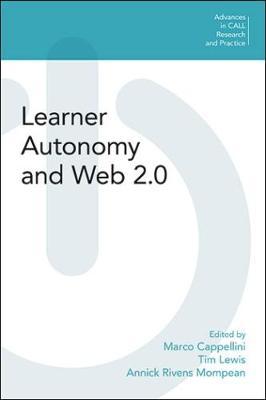Learner Autonomy and Web 2.0

Learner Autonomy and Web 2.0
Subsequent contributors include an exploration how autonomy can be exercised even within the constraints of adaptive learning systems, a discussion of the metacognitive operations engaged in by autonomous adult learners in a French/Australian teletandem exchange, a look at an ecological paradigm of autonomy to conceptualise its emergence in relation to the use of mobile apps by primary- and secondary-level language learners in Canada, a study of how learner autonomy with a markedly social and empathic dimension drives collaboration in a Facebook-based collaborative writing project, a study of the autonomy stances adopted by different groups of learners using the Busuu online language exchange platform, an analysis of the difficulties encountered by a group of trainee language teachers in engaging with a range of language MOOCs and finally a study of how autonomy is experienced by advanced learners of English with a preference for online informal learning bas
PRP: 212.08 Lei
Acesta este Prețul Recomandat de Producător. Prețul de vânzare al produsului este afișat mai jos.
190.87Lei
190.87Lei
212.08 LeiIndisponibil
Descrierea produsului
Subsequent contributors include an exploration how autonomy can be exercised even within the constraints of adaptive learning systems, a discussion of the metacognitive operations engaged in by autonomous adult learners in a French/Australian teletandem exchange, a look at an ecological paradigm of autonomy to conceptualise its emergence in relation to the use of mobile apps by primary- and secondary-level language learners in Canada, a study of how learner autonomy with a markedly social and empathic dimension drives collaboration in a Facebook-based collaborative writing project, a study of the autonomy stances adopted by different groups of learners using the Busuu online language exchange platform, an analysis of the difficulties encountered by a group of trainee language teachers in engaging with a range of language MOOCs and finally a study of how autonomy is experienced by advanced learners of English with a preference for online informal learning bas
Detaliile produsului










